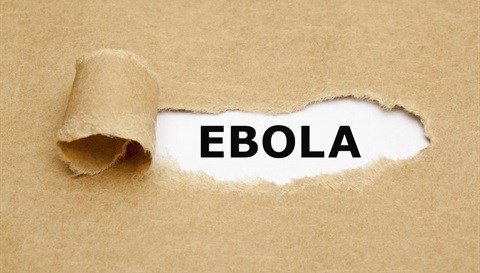In one week at the height of the outbreak of the Ebola Virus Disease, EVD, in West Africa in 2014, Twitter users shared over four billion Ebola-related messages.
This discovery is from results of a new study carried out by researchers from Columbia University School of Nursing in New York. In the study, researchers analysed Ebola-related tweets posted over a week in the early stages of the West African outbreak - from 24 July 24 to 1 August 2014, said Twitter can play a useful role in outbreak monitoring and control.
Over 60 million people received tweets about the Ebola outbreak in West Africa. The study, published in the American Journal of Infection Control, revealed that during the week in question, Nigeria reported its first case of Ebola virus disease, Sierra Leone declared a national state of emergency and the first American was diagnosed with the deadly disease.
It reported that even before official announcements were made by the Nigerian authorities, the World Health Organisation,WHO, and the US Centers for Disease Control and Prevention, CDC, were sharing news about Ebola cases via Twitter. Further, the study disclosed that in the three days prior to Nigeria's official announcement about Ebola, Twitter users had already shared around 1,500 tweets about the outbreak.
Among the first tweets at that time in Nigeria were messages like "#EbolaVirus 1st case discovered Lagos, pls spread the word" and "Guys, #EbolaVirus is in Lagos. Be informed. Be careful." During the week covered by the study, the researchers analysed over 42,000 tweets - 16,500 of which were unique and over 25,500 were retweets. Over the week, the spread of tweets multiplied by 63 times to over four billion user messages worldwide.
The researchers analysed the timings, distribution and contents of the tweets. The content analysis - using natural language processing techniques - revealed that Twitter users' main topics of discussions were risk factors, prevention education, disease trends, spread and location of Ebola, and compassion for countries in Africa.
The authors note that the number of Twitter users in African countries like Nigeria has increased exponentially, and it is "clear that Twitter is a useful resource for spreading breaking health news in these West African countries." They conclude that mining tweets could be a useful way to inform public health education: "The results of this analysis indicate how Twitter can be used to support early warning systems in outbreak surveillance efforts in settings where surveillance systems are not optimal."
Social media allow users to play active roles in spreading news. Users can share insights, opinions, fears and ideas, outside the contexts of conventional public health channels. Twitter is a popular social media application where users can send short messages - called "tweets" - of up to 140 characters. The ability to "retweet" a received message allows for rapid and broad distribution of information.
Worldwide, over 58 million tweets a day are generated by a diverse and growing community of over 645 million registered Twitter users. Timely information gathering is crucial in outbreak surveillance and an important part of limiting disease spread and ensuring appropriate public health education. Researchers are increasingly turning to social media as rich seams of data, which, if mined appropriately, can help capture epidemic trends and other important surveillance information.
The Ebola outbreak in West Africa - which started in March 2014 - is now the largest and deadliest occurrence of Ebola virus disease to date, with over 11,000 lives claimed and over 27,000 reported cases. In Africa, Nigeria has 9,518 twitter followers, followed by Kenya with 9,246 followers, while South Africa places a distant 3rd.

























